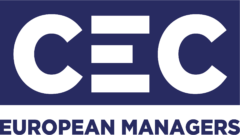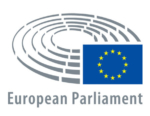|
🇪🇺 Updates from the Brussels institutions ͏ ͏ ͏ ͏ ͏ ͏ ͏ ͏ ͏ ͏ ͏ ͏ ͏ ͏ ͏ ͏ ͏ ͏ ͏ ͏ ͏ ͏ ͏ ͏ ͏ ͏ ͏ ͏ ͏ ͏ ͏ ͏ ͏ ͏ ͏ ͏ ͏ ͏ ͏ ͏ ͏ ͏ ͏ ͏ ͏ ͏ ͏ ͏ ͏ ͏ ͏ ͏ ͏ ͏ ͏ ͏ ͏ ͏ ͏ ͏ ͏ ͏ ͏ ͏ ͏ ͏ ͏ ͏ ͏ ͏ ͏ ͏ ͏ ͏ ͏ ͏ ͏ ͏ ͏ ͏ ͏ ͏ ͏ ͏ ͏ ͏ ͏ ͏ ͏ ͏ ͏ ͏ ͏ ͏ ͏ ͏ ͏ ͏ ͏ ͏ ͏ ͏ ͏ ͏ ͏ ͏ ͏ ͏ ͏ ͏ ͏ ͏ ͏ ͏ ͏ ͏ ͏ ͏ ͏ ͏ ͏ ͏ ͏ ͏ ͏ ͏ ͏ ͏ ͏ ͏ ͏ ͏ ͏ ͏ ͏ ͏ ͏ ͏ ͏ ͏ ͏ ͏ ͏ ͏ ͏ ͏ ͏ ͏ ͏ ͏ ͏ ͏ ͏
|
| |
Welcome.
In this edition, we delve into key legislative decisions from the European Parliament, explore the European Commission’s 2025 Work Programme priorities, and analyze the latest Council discussions under Poland’s EU Presidency.
From regulatory shifts aimed at boosting competitiveness to labour market challenges and geopolitical considerations, we break down what these policy movements mean for managers across industries.
EU Policy Pulse is designed to keep you informed, engaged, and prepared to adapt to the challenges and opportunities ahead. Happy reading!
|
|
|
| |
|
|
| |
European Parliament:
Committee agendas
The agendas of the committees of the European Parliament are usually published around 2-4 weeks in advance of the scheduled meetings.
|
|
| |
|
|
|
|
| |
Committee on Industry, Research
and Energy (ITRE)
| |
|
ITRE oversees industrial policy, research and innovation, and the digital economy, playing a key role in shaping Europe's digital future and fostering innovation.
|
|
| |
|
|
| |
Committee on the Environment,
Public Health and Food Safety (ENVI)
| |
|
ENVI addresses environmental policy, sustainable development, and public health, aligning with our commitment to sustainable leadership.
|
|
| |
|
|
| |
Committee on Women's Rights
and Gender Equality (FEMM)
| |
|
FEMM focuses on gender equality and women's rights, including policies to bridge the digital gender gap and enhance women's participation in the digital economy.
|
|
| |
|
|
| |
Committee on Employment
and Social Affairs (EMPL)
| |
|
EMPL deals with employment policies, social inclusion, and workers' rights, addressing diversity and inclusion in the workplace.
Current Status of the Traineeships Directive proposal
The proposals are currently under consideration in the European Parliament's Employment and Social Affairs Committee (EMPL), with discussions and potential amendments anticipated in the coming months.
|
|
| |
|
|
| |
Committee on Economic
and Monetary Affairs (ECON)
| |
|
The ECON committee is responsible for issues related to economic policies, financial regulation, and the EU's monetary policies.
|
|
| |
|
|
| |
Committee on Internal Market
and Consumer Protection (IMCO)
| |
|
The IMCO committee focuses on the functioning of the EU’s internal market and safeguarding consumer rights.
|
|
| |
|
|
| |
|
Plenary Summary
| |
Key Decisions from the European Parliament Plenary (February 10–13, 2025) and Their Impact on ManagersThe European Parliament’s latest plenary session resulted in several decisions that will directly affect managers across various sectors. Below is a breakdown of the most relevant outcomes and their potential implications.
|
|
| |
|
|
| |
| |
Withdrawal of Proposed Regulations on Technology Patents, AI Liability, and Online PrivacyThe European Commission withdrew legislative proposals on technology patents, artificial intelligence (AI) liability, and online privacy due to challenges in securing approval from EU lawmakers. These included: - Standard Essential Patents Regulation, which aimed to standardize patents across industries but faced resistance from major industrial players.
- AI Liability Directive, designed to facilitate compensation claims for AI-related damages.
- ePrivacy Regulation, which sought to extend telecom privacy rules to online messaging services.
📌 Sectoral Impact: - Technology & Digital: The withdrawal of AI and privacy-related regulations provides more flexibility but also uncertainty about future frameworks.
- Manufacturing & Automotive: Without new patent regulations, companies can maintain competitive innovation strategies but may face inconsistencies in patent protections.
- Finance & Banking: The absence of stricter data privacy regulations may affect risk management and customer data handling practices.
Regulatory Shift Towards Competitiveness & SimplificationThe new European Commission is prioritizing regulatory simplification to enhance EU competitiveness. This includes potential revisions to existing sustainability and transparency regulations, such as the Corporate Sustainability Reporting Directive (CSRD). 📌 Sectoral Impact: - Cross-Sectoral Management & Leadership: Managers will need to stay updated on reporting requirement changes. Simplifications may reduce administrative burdens, but sustainability commitments could be weakened.
- Engineering & Technical Professions: A streamlined regulatory environment may encourage more investment and innovation.
Labour Shortages in the Healthcare SectorEU policymakers debated strategies to address labour shortages in healthcare, including improving working conditions, attracting international talent, and enhancing digital transformation in healthcare services. 📌 Sectoral Impact: - Healthcare & Social Services: Managers in this sector should anticipate policy measures aimed at workforce retention, new hiring incentives, and increased digital health investments.
Support for Ukraine & Geopolitical ImpactsThree years after Russia’s invasion of Ukraine, the EU reaffirmed its support for Ukraine and discussed targeted aid for border regions. 📌 Sectoral Impact: - Energy & Utilities: With ongoing geopolitical tensions, energy managers should anticipate policy shifts aimed at energy security and diversification.
- Transport & Infrastructure: Supply chain disruptions and new trade policies could impact logistics and infrastructure projects in Eastern Europe.
What This Means for European ManagersThese decisions reflect a shifting EU policy environment that balances regulatory simplification with evolving geopolitical and labour market challenges. Managers across industries should stay proactive in adapting to these changes, ensuring compliance and strategic alignment with EU priorities. The next European Parliament plenary session is scheduled from Monday, 10 March 2025, to Thursday, 13 March 2025, in Strasbourg.
|
|
| |
| |
|
|
| |
European Commission:
Calendar
This information has been directly shared by the European Commission during the Liaison Forum held in Brussels on the 19 February 2025.
|
|
| |
|
|
|
|
| |
| |
Commission Work Program for 2025- The Commission Work Program, titled “Moving Forward: Bolder, Simpler, Faster Union,” outlines major legislative and policy priorities.
- Key challenges addressed: geopolitical instability, climate change, economic competitiveness, and social fairness.
- The Competitiveness Compass, introduced in January, will guide future work, with simplification and competitiveness as central themes.
- The Commission is committed to streamlining regulations while ensuring social fairness remains a cornerstone of policy.
Key Legislative and Policy InitiativesSocial and Employment Policies:
- The European Pillar of Social Rights remains the guiding framework.
- A new Action Plan for Social Rights will be launched in Q4 2025 to achieve 2030 targets on employment, skills, and poverty reduction.
- A Quality Jobs Roadmap is in development, with input from social partners.
- The Union of Skills (launching March 5), will address upskilling, reskilling, and mobility within the EU labor market.
Pending Legislative Proposals:
- Directive on Quality Traineeships – improving accessibility and standards.
- European Works Council Initiative – ongoing trilogues.
- Reform of EU Social Security Coordination (Regulation 883/2004) – long-pending but crucial for labor mobility.
Implementation and Enforcement Focus:
- Each Commissioner will report annually on policy implementation and enforcement progress in their respective areas.
- The Commission remains committed to launching infringement procedures where EU law is not properly applied.
Social Partner Engagement & Broader Policy DevelopmentsThe Commission emphasized the increased engagement of social partners across various policy areas, including:
- Clean Industrial Deal
- Single Market Strategy
- Public Procurement Directive
- Equality Strategies (LGBTIQ+, Anti-Racism, Women's Rights)
The Pact for European Social Dialogue is expected to be signed in Q1 2025, formalizing deeper engagement with social partners beyond traditional areas.
|
|
| |
| |
|
|
| |
Council of the European Union
The next Employment, Social Policy, Health and Consumer Affairs Council (Social policy) will take place on 10 March 2025.
The agenda highlights will be published a week before the meeting date. CEC will monitor and report on the main results after the meeting.
|
|
| |
|
|
|
|
| |
|
Polish presidency

|
| |
|
As of February 19, 2025, under Poland's Presidency of the Council of the European Union, several developments are pertinent to members of CEC European Managers across various sectors: Easing of EU Defence Spending Rules
The European Commission is swiftly proposing the relaxation of budgetary constraints to permit increased defence expenditures by EU member states. This initiative, supported by Poland, aims to enhance Europe's defence capabilities amid evolving security challenges. Polish Finance Minister Andrzej Domanski emphasized the importance of clearly defining new guidelines to ensure credibility while allowing for necessary defence investments. Implications for CEC European Managers: - Cross-Sectoral Management and Leadership: Managers should anticipate potential shifts in budget allocations and strategic priorities, particularly in industries related to defence and security.
- Finance and Banking Sector: Financial professionals may experience changes in fiscal policies and investment opportunities as defence spending becomes more prominent.
Strengthening European Security and Defence
Poland's Presidency is prioritizing the reinforcement of European security through enhanced cooperation with NATO and like-minded non-EU countries, notably the USA and the UK. This focus includes bolstering military security and ensuring a robust transatlantic partnership. Implications for CEC European Managers: - Technology and Digital Sector: Increased emphasis on security may lead to heightened demand for cybersecurity solutions and innovations.
- Public Administration and Civil Service: Managers in government sectors might see expanded roles in coordinating security initiatives and policy implementations.
Advancements in Sustainable Practices
A notable achievement under the Polish Presidency is the agreement on EU-wide targets to reduce food waste by 2030. This initiative aims to promote sustainability and create a more resource-efficient economy. Implications for CEC European Managers: - Retail and Commerce: Managers should prepare for the implementation of new regulations focused on waste reduction, potentially requiring adjustments in supply chain and inventory practices.
Focus on Economic and Energy Security
The Polish Presidency is addressing economic resilience and energy independence, aiming to reduce reliance on external entities and enhance the EU's internal market. This includes discussions on financing defence initiatives and improving the overall business environment within the EU. Implications for CEC European Managers: - Energy and Utilities: Managers in this sector may encounter new policies promoting energy diversification and sustainability, influencing operational strategies.
- Engineering and Technical Professions: There could be increased opportunities in projects aimed at bolstering infrastructure and energy systems, aligning with the EU's push for greater self-sufficiency.
|
|
| |
|
|
| |
| |
Stay engaged.
If you would like detailed information on any of the agenda items or wish to request a meeting with key stakeholders in the European Parliament, including rapporteurs or committee members, please feel free to reach out to us.
We are here to support your interests and ensure your voice is represented in these important discussions.
|
|
| |
|



